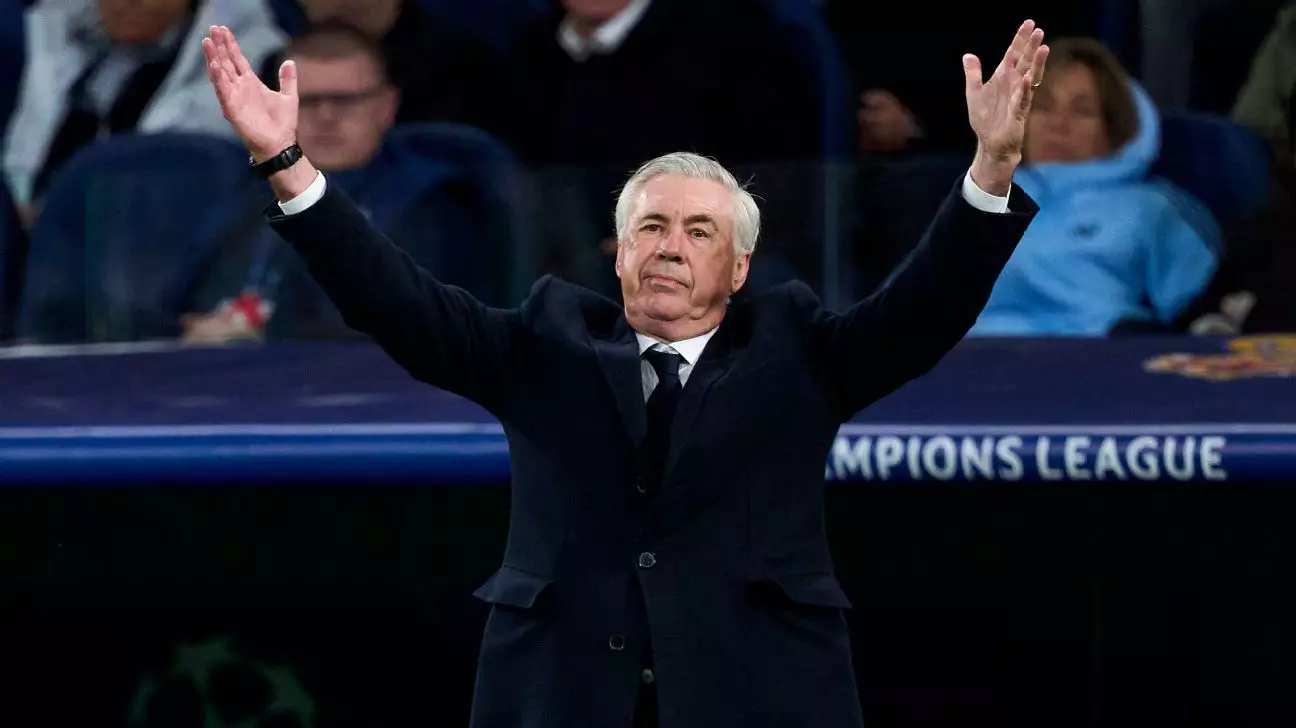The recent loss to Arsenal in the Champions League quarterfinals has put Real Madrid boss Carlo Ancelotti under the microscope, intensifying debate about his tactics and future. As the reigning champions faced a disappointing 2-1 defeat at the Bernabéu, the implications of this match are heavy, not just for the team’s position in Europe but for Ancelotti’s managerial status.
Ancelotti’s comments after the match reveal a man weighing his options and the ever-looming specter of managerial change at such a storied club. His uncertain future isn’t surprising given the team’s performance fluctuations this season, especially after high-profile defeats to rivals Barcelona. While Ancelotti’s contract extends until 2026, he appears acutely aware that football is often unforgiving. His expression of gratitude towards the club suggests a legacy mindset, potentially signaling acceptance of whatever outcome unfolds, whether it’s his departure now or later.
Turning Points: The Missed Penalty and Tactical Shortcomings
Analyzing the match against Arsenal offers insight into where Real Madrid’s campaign fell short. Bukayo Saka, who had an early penalty saved, was eventually pivotal as he scored the opener. Madrid seemed to respond when Vinícius Júnior capitalized on a defensive error, momentarily rekindling hopes. However, the team’s inability to grasp game momentum after this equalizer points to deeper tactical shortcomings.
Ancelotti did reference a potentially game-changing penalty that was overturned after a VAR review, indicating that crucial decisions can alter the course of matches. Still, the issue appears less about refereeing and more about adaptability. Ancelotti’s admission of needing a robust collective attitude reveals a disjointed team chemistry that has surfaced intermittently throughout the season. With a team of superstars like Kylian Mbappé and Vinícius Júnior, relying heavily on individual brilliance over cohesive play is a dangerous gamble.
The Appeals and Critiques: Courtois Voices the Need for Transformation
Thibaut Courtois’s remarks post-match added a layer of clarity to the issues plaguing Madrid. He emphasized the importance of teamwork and the need for collective effort rather than individual displays of skill. This is a call to arms for the players to synergize more effectively, especially in high-pressure matches against elite competition.
Courtois’s critique extends to the lineup itself, hinting at a glaring missing piece: a proficient center forward to lead the attack. The absence of someone like Joselu, who formerly excelled as a focal point in the offensive strategy, complicates Madrid’s ability to capitalize on their attacking plays. Courtois’s acknowledgment of this gap illustrates a strategic misalignment and raises the question of whether the club effectively assessed its roster following significant departures in the transfer window.
Looking Ahead: The La Liga Challenge and Copa del Rey
Despite the Champions League heartbreak, Real Madrid is not devoid of hope in other competitions. They remain competitive in La Liga and will soon face Barcelona in the Copa del Rey final—a moment to either redeem their earlier setbacks or further emphasize the present struggles under Ancelotti’s guidance. The prospects of fulfilling their domestic ambitions can serve as a catalyst for rejuvenation.
This upcoming period will test Madrid’s resilience, not just as individuals but as a squad committed to a unified vision. The immediate challenges against Athletic Club and Getafe will serve as litmus tests for their ability to produce attractive, cohesive football while under intense scrutiny. As they navigate this pivotal juncture, the outcome of these matches could significantly shape the trajectory of Ancelotti’s tenure.
The current campaign paints a picture of a club at a crossroads: a glorious past intertwined with questions of future directions. The choices that lie ahead not only impact Ancelotti’s legacy but the club’s competitive identity as they aspire to reclaim their status among Europe’s elite.

